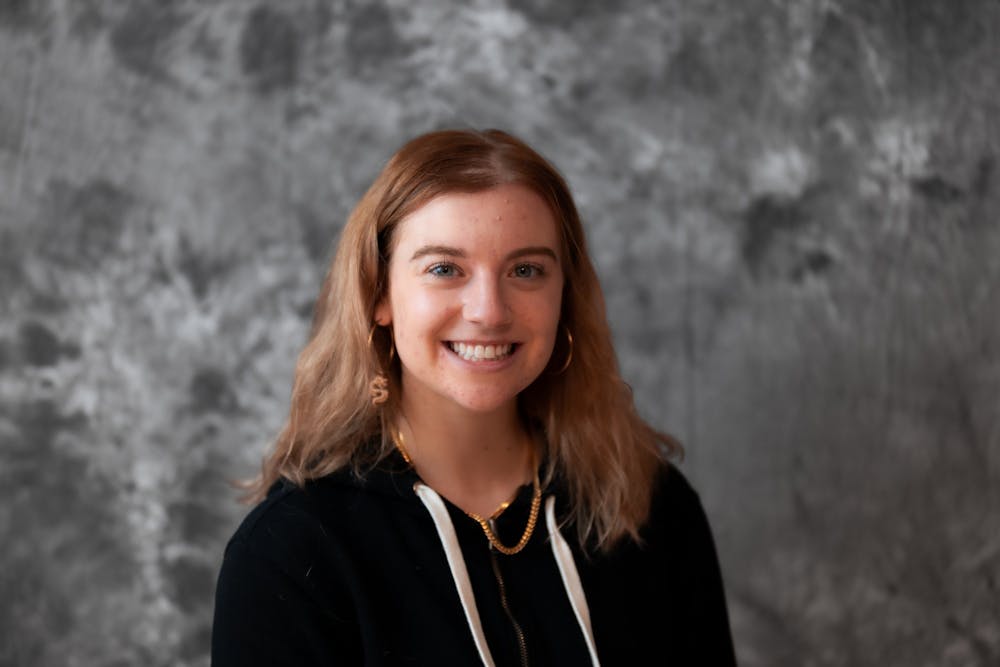Every time I turn on my TV and watch a professional sports game, I can’t help but notice that something is missing: openly LGBTQ+ athletes.
In the NBA’s 75-year history, only two athletes (Jason Collins, John Amaechi) have come out as gay. In the NFL’s 102-year history, only 16 players have come out as gay or bisexual. (Only one, Carl Nassib, played a down of football after coming out.) In the MLB’s 146-year history, only two competitors (Glenn Burke, Billy Bean) have come out as gay. And in the NHL’s 105-year history, only one individual (Luke Prokop) has come out.
I, for one, find it very difficult to believe that of the hundreds of thousands of athletes who have suited up on game days, only 21 are members of the LGBTQ+ community.
So, what is keeping male athletes quiet about their sexuality?
In a world where we already don’t do enough to accept members of the LGBTQ+ community, the sports industry is even less accepting thanks to an atmosphere that intertwines homophobia with competition.
Male athletes are trained to be aggressive and hypermasculine, and stereotyping has led many to believe that any man who likes another man has “feminine” qualities. This association creates an unaccepting environment where “hypermasculine” men often treat gay athletes differently — and it’s rarely a good kind of “different.”
It doesn’t help when you consider the way people in the industry openly air their hateful opinions.
“You know, I hate gay people, so I let it be known,” former NBA guard Tim Hardaway said in 2007. “I don’t like gay people, and I don’t like to be around gay people. I am homophobic. I don’t like it. It shouldn’t be in the world or in the U.S.” (Hardaway has since apologized and committed to self-educating.)
A fan found 78 homophobic tweets made by 40 current NBA players, and although 70 of those tweets date back to 2009-13, the tweets speak volumes about the players’ character and the environment they are creating.
Kevin Durant, Draymond Green, Zach LaVine and JaVale McGee made up one-third of the U.S. basketball team that competed in the 2020 Tokyo Olympics. They all have sent out harmful and homophobic tweets in the past.
Durant, in particular, has done everything he can to rehabilitate his image — without actually supporting this community. In 2013, he expressed public support for Collins after he came out. But last year, he sent actor Michael Rapaport a slew of homophobic slurs over Instagram that were later posted to Twitter.
Obviously, his response to Collins coming out was a charade.
The gay community is already marginalized enough; the last thing it needs is uneducated and bigoted professional athletes using their platform to spew hateful comments and make them feel even more isolated.
This toxic environment prevents athletes — young and old — from expressing their true selves. In many cases, gay athletes are bullied into quitting their sport at a young age, dashing any hopes they may have had of making it pro.
That was the case with Glenn Burke, a former MLB outfielder who suffered mistreatment from the staff at his home stadium and from his own teammates because of his sexuality.
Interactions and anecdotes like these undoubtedly play a role in setting up a fear-filled environment for gay athletes that deters them from coming out.
“Prejudice drove me out of baseball sooner than I should have,” Burke said in a 1994 interview with The New York Times. “But I wasn’t changing.”
We must stop making athletes feel ashamed for who they are just because they don’t fit some macho, “All-American” stereotype.
No one should have to conceal their identity to pursue their dream.
More often than not, athletes do not come out about their sexuality until the final buzzer sounds and their days in the arena are done.
We treat star athletes like gods and it makes me wonder, would we shift the narrative surrounding LGBTQ+ athletes if someone like Josh Allen or Ja Morant were gay? Would we disregard their talent and degrade them, or would we peer through a more accepting lens?
I hope it is the latter.
Kayla Sterner is an assistant sports editor and can be reached at kayla.sterner@ubspectrum.com

Kayla Sterner is an assistant sports editor at The Spectrum. She is studying communications with the hopes of being a sideline reporter. In her spare time, she can be found in the gym, watching football or vibing to Mac Miller. Kayla is on Twitter @kaylasterner.





